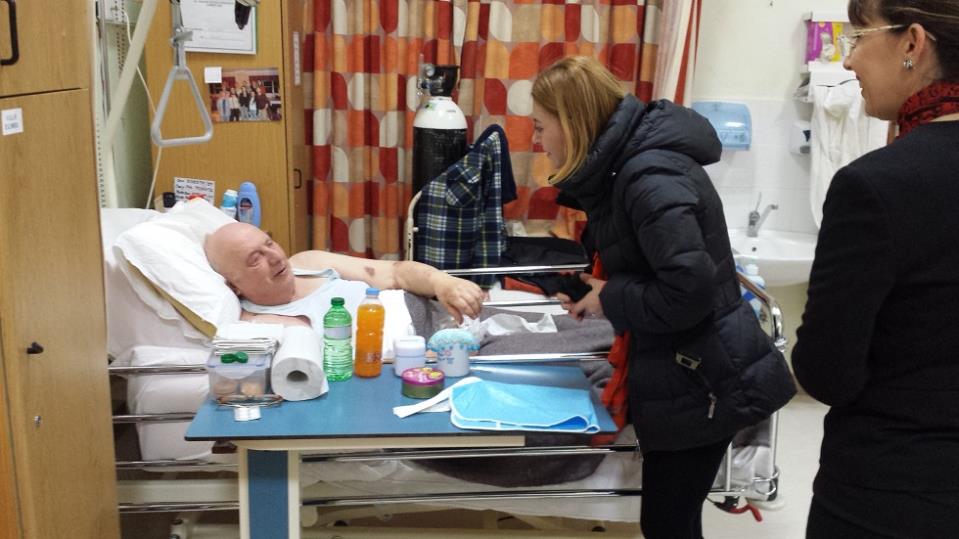Natalie Farrugia Briffa, the chief executive officer of CareMalta – which operates eight elderly homes across Malta – said she disagrees that the system whereby elderly persons give up their home in return for long-term lodging and care at private elderly residences, gives rise to abuse.
“I must say that I am in disagreement that such a system gives rise to abuse, when the correct measures are in place,” Ms Briffa said.
Ms Briffa – the daughter of Nazzareno Vassallo, who is the chairman of CareMalta and a building developer - pointed out that there is an internationally established model for long-term care offering this option.
Today, the CareMalta Group cares for over 900 residents and employs a workforce of over 700.
She assured that the measures taken to ensure that unlimited care is given to the client are guaranteed and regulated by contractual obligations through a public deed.

Ms Briffa was replying to questions sent by this newsroom after General Workers’ Union newspaper it-Torca earlier this week revealed that certain elderly patients who could not afford to wait any longer to secure a place at a state elderly home were giving up their home in return for lodging and care at certain private residences for the elderly. The newspaper explained that elderly persons were giving in to signing a contract with a private elderly care home to give up their property. The property would then be sold and the funds received from the sale of the property would sustain their long-term care at a private elderly residence.
Reportedly, such a system was leading to family feuds, especially when the children of the elderly patient would have disagreed with the fact that the property of their parent/s would be exchanged in such a way. It was also reported that the worst case scenario is when elderly patients are driven into engaging in such a deal because he or she have no other way out.
CareMalta operates eight facilities across Malta in all, namely Casa Arkati (Mosta), Villa Messina (Rabat), Roseville (Attard), Żejtun Home, Cospicua Home, Dar il-Madonna tal-Mellieħa, Zammit Clapp Hospital Residential Home (St Julian’s) and the Prince of Wales Apartments (Sliema).
Ms Briffa said that in the case of CareMalta “our first option is always through the daily rate method of payment, however we have had four requests to cover elderly patients’ long-term care through this method in our private homes in the 21 years we have been operating. All these are regulated through public deeds”.
However, sources who spoke to this newsroom explained that dementia patients, most of all, were the most vulnerable and such a system could possibly give rise to abuse.
When asked what happens to the remaining funds of the sale of a property as a result of a property exchange in the event the elderly person who engages in such an agreement ends up passing away soon after, Ms Farrugia Briffa said that
CareMalta has options of refund clauses and the possibility of transfer of care to a relative, but highlighted that each case reflects the requirements of each client.
This question was posed after sources who spoke to this newsroom said that most disputes stemmed from relatives who feared that they would lose out on inheritance as a result of such mechanisms.
A notary who spoke to this newsroom explained that once a person has sold his or her property, nothing binds that person to the property any longer but it all depends on the terms and conditions agreed upon and the type of mechanism used.

Waiting list issue at St Vincent de Paul being tackled, government says
Parliamentary Secretary for Active Aging Justyne Caruana told a news conference on Monday that the waiting lists at St Vincent de Paul – which is a highly medically equipped facility for the elderly – was witnessing a slight decrease in the waiting list however pointed out that as from now on, elderly patients who are highly dependent would only be accepted at St Vincent de Paul while those who are less dependent would be channelled elsewhere.
She explained that elderly persons were writing themselves in even though they could still lead independent lives so as to secure a place at St Vincent de Paul. This, she said, has to stop after pointing out that a number of residents staying at the state facility were still able to lead independent lives.